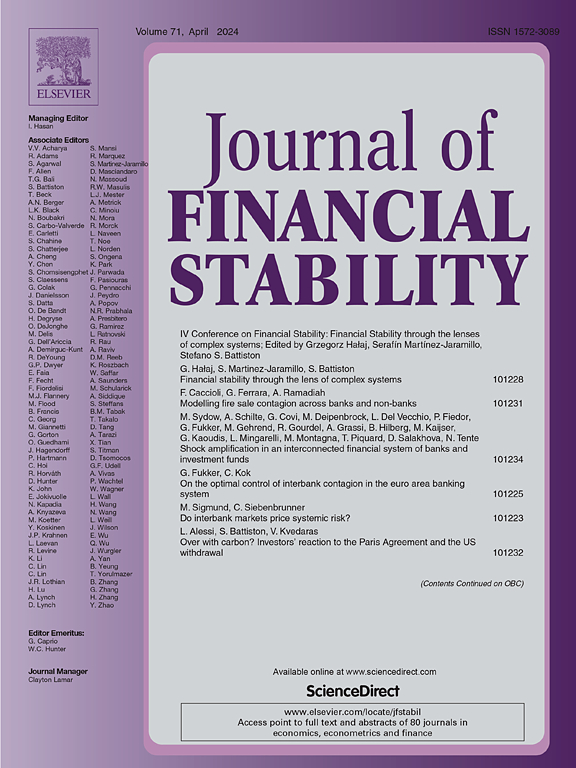气候风险是否会影响分析师的预测准确性?
IF 4.2
2区 经济学
Q1 BUSINESS, FINANCE
引用次数: 0
摘要
我们研究了气候风险如何影响以预测误差和离散度为代表的分析师预测准确性。通过利用干旱的时间趋势估算国家级气候风险,我们发现分析师对干旱多发国家的公司预测准确性较低。如果在盈利预测中指出气候风险,而且公司的母国更依赖水力发电、农业和食品工业更重要、对气候变化持积极态度,那么气候风险的影响就更大。总之,我们的研究结果表明,气候风险会通过分析师预测的准确性对金融市场产生值得注意的影响。本文章由计算机程序翻译,如有差异,请以英文原文为准。
Does climate risk influence analyst forecast accuracy?
We examine how climate risk influences analyst forecast accuracy proxied by forecast error and dispersion. Using country-level climate risk estimated with time trends in droughts, we find that analyst forecasts are less accurate for firms in drought-prone countries. This effect of climate risk is stronger when climate risks are denoted in earnings forecasts, and when firms’ home countries have greater reliance on hydroelectric sources in electricity generation, more important agricultural and food industries, and active stances concerning climate change. Overall, our findings suggest noteworthy implications of climate risk on the financial markets via analyst forecast accuracy.
求助全文
通过发布文献求助,成功后即可免费获取论文全文。
去求助
来源期刊

Journal of Financial Stability
Multiple-
CiteScore
7.70
自引率
9.30%
发文量
78
审稿时长
34 days
期刊介绍:
The Journal of Financial Stability provides an international forum for rigorous theoretical and empirical macro and micro economic and financial analysis of the causes, management, resolution and preventions of financial crises, including banking, securities market, payments and currency crises. The primary focus is on applied research that would be useful in affecting public policy with respect to financial stability. Thus, the Journal seeks to promote interaction among researchers, policy-makers and practitioners to identify potential risks to financial stability and develop means for preventing, mitigating or managing these risks both within and across countries.
 求助内容:
求助内容: 应助结果提醒方式:
应助结果提醒方式:


